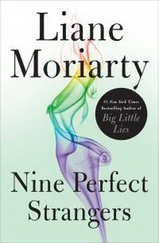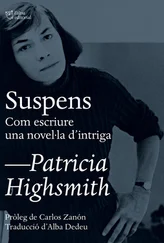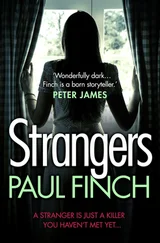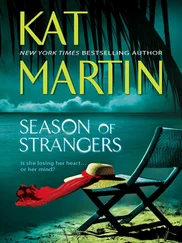He awakened with a jerk and rolled from under Gerard’s hand on his shoulder.
“By-by,” Gerard said, his smile showing his tobacco-stained lower teeth. “Just leaving and thought I’d say good-by.”
“Is it worth waking somebody up for?” Bruno said.
Gerard chuckled and waddled from the room before Bruno could think of some mitigating phrase he really wanted to say. He plunged back on the pillow and tried to resume his nap, but when he closed his eyes, he saw Gerard’s stocky figure in the light-brown suit going down the halls, slipping wraithlike through closed doors, bending to look into drawers, to read letters, to make notes, turning to point a finger at him, tormenting his mother so it was impossible not to fight back.
Twenty-seven
“What else can you make of it? He’s accusing me!” Bruno shouted across the table.
“Darling, he’s not. He’s attending to his business.”
Bruno pushed his hair back. “Want to dance, Mom?”
“You’re in no condition to dance.” He wasn’t and he knew it. “Then I want another drink.”
“Darling, the food’s coming right away.”
Her patience with it all, the purple circles under her eyes, pained him so he could not look in front of him. Bruno glanced around for a waiter. The place was so crowded tonight, it was hard to tell a waiter from any other guy. His eyes stopped on a man at a table across the dance floor who looked like Gerard. He couldn’t see the man he was with, but he certainly looked like Gerard, the bald head and light brown hair, except this man wore a black jacket. Bruno closed one eye to stop the rhythmic splitting of the image.
“Charley, do sit down. The waiter’s coming.”
It was Gerard, and he was laughing now, as if the other fellow had told him he was watching them. For one suspended, furious second, Bruno wondered whether to tell his mother.
Then he sat down and said with vehemence: “Gerard’s over there!”
“Is he? Where?”
“Over left of the orchestra. Under the blue lamp.”
“I don’t see him.” His mother stretched up. “Darling, you’re imagining.”
“I am not imagining!“Bruno shouted and threw his napkin in his roast beef au jus.
“I see the one you mean, and it’s not Gerard,” she said patiently.
“You can’t see him as good as I can! It’s him and I don’t feel like eating in the same room with him!”
“Charles,” she sighed. “Do you want another drink? Have another drink. Here’s a waiter.”
“I don’t even feel like drinkin’ with him! Want me to prove it’s him?”
“What does it matter? He’s not going to bother us. He’s guarding us probably.”
“You admit it’s him! He’s spying on us and he’s in a dark suit so he can follow us anywhere else we go!”
“It’s not Arthur anyway,” she said quietly, squeezing lemon over her broiled fish. “You’re having hallucinations.”
Bruno stared at her with his mouth open. “What do you mean saying things like that to me, Mom?” His voice cracked.
“Sweetie, everybody’s looking at us.”
“I don’t care!”
“Darling, let me tell you something. You’re making too much out of this.” She interrupted him, “You are, because you want to. You want excitement. I’ve seen it before.”
Bruno was absolutely speechless. His mother was turning against him. He had seen her look at the Captain the way she looked at him now.
“You’ve probably said something to Gerard,” she went on, “in anger, and he thinks you’re behaving most peculiarly. Well, you are.”
“Is that any reason for him to tail me day and night?”
“Darling, I don’t think that’s Gerard,” she said firmly.
Bruno pushed himself up and staggered away toward the table where Gerard sat. He’d prove to her it was Gerard, and prove to Gerard he wasn’t afraid of him. A couple of tables blocked him at the edge of the dance floor, but he could see it was Gerard now.
Gerard looked up at him and waved a hand familiarly, and his little stooge stared at him. And he, he and his mother were paying for it! Bruno opened his mouth, not knowing exactly what he wanted to say, then teetered around. He knew what he wanted to do, call up Guy. Right here and now. Right in the same room with Gerard. He struggled across the dance floor toward the telephone booth by the bar. The slow, crazily revolving figures pressed him back like a sea wave, baffling him. The wave floated toward him again, buoyant but insuperable, sweeping him yet farther back, and a similar moment at a party in his house when he was a little boy, when he tried to get through the dancing couples to his mother across the living room, came back to him.
Bruno woke up early in the morning, in bed, and lay perfectly still, retracing the last moments he could remember. He knew he had passed out. Had he called Guy before he passed out? If he had, could Gerard trace it? He surely hadn’t talked to Guy or he’d remember it, but maybe he’d called his house. He got up to go ask his mother if he had passed out in the telephone booth. Then the shakes came on and he went into the bathroom. The Scotch and water splashed up in his face when he lifted the glass. He braced himself against the bathroom door. It was getting him at both ends now, the shakes, early and late, waking him earlier and earlier, and he had to take more and more at night to get to sleep. And in between was Gerard.
Twenty-eight
Momentarily, and faintly, as one re-experiences a remembered sensation, Guy felt secure and self-sufficient as he sat down at his work table where he had his hospital books and notes carefully arranged.
In the last month, he had washed and repainted all his bookshelves, had his carpet and curtains cleaned, and had scrubbed his kitchenette until its porcelain and aluminum gleamed. All guilt, he had thought as he poured the pans of dirty water down the sink, but since he could sleep no more than two or three hours a night, and then only after physical exercise, he reasoned that cleaning one’s house was a more profitable manner of tiring oneself than walking the streets of the city.
He looked at the unopened newspaper on his bed, then got up and glanced through all its pages. But the papers had stopped mentioning the murder six weeks ago. He had taken care of every clue—the purple gloves cut up and flushed down the toilet, the overcoat (a good overcoat, and he had thought of giving it to a beggar, but who would be so base as to give even a beggar a murderer’s overcoat?) and the trousers torn in pieces and disposed of gradually in the garbage. And the Luger dropped off the Manhattan Bridge. And his shoes off another. The only thing he had not disposed of was the little revolver.
He went to his bureau to look at it. Its hardness under his fingertips soothed him. The one clue he had not disposed of, and all the clue they needed if they found him. He knew exactly why he kept the revolver: it was his, a part of himself, the third hand that had done the murder. It was himself at fifteen when he had bought it, himself when he had loved Miriam and had kept it in their room in Chicago, looking at it now and then in his most contented, most inward moments. The best of himself, with its mechanical, absolute logic. Like him, he thought now, in its power to kill.
If Bruno dared to contact him again, he would kill him, too. Guy was sure that he could. Bruno would know it, too. Bruno had always been able to read him. The silence from Bruno now brought more relief than the silence from the police. In fact, he was not anxious at all lest the police find him, had never been. The anxiety had always been within himself, a battle of himself against himself, so torturous he might have welcomed the law’s intervention. Society’s law was lax compared to the law of conscience. He might go to the law and confess, but confession seemed a minor point, a mere gesture, even an easy way out, an avoidance of truth. If the law executed him, it would be a mere gesture.
Читать дальше












